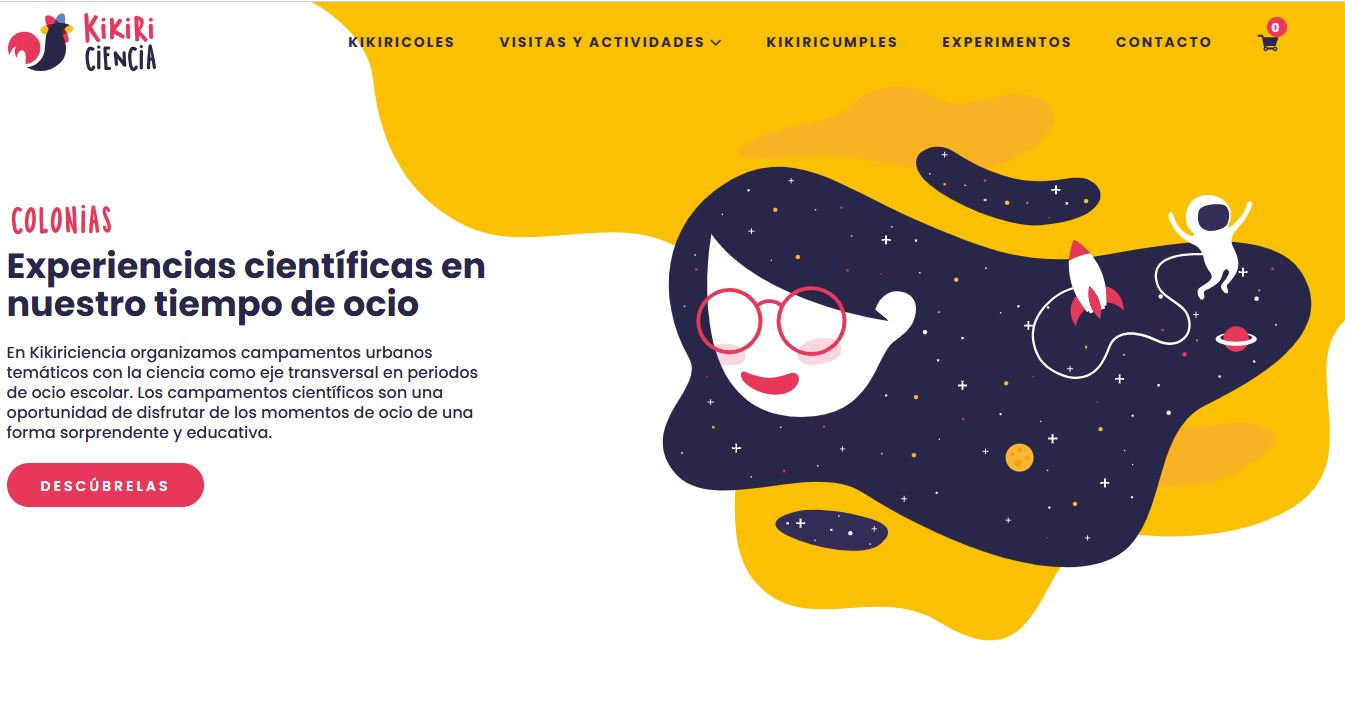Colonias Kikiriciencia
Institution
Kikiriciencia
Institution Typology
Education Center
Country
Spain
Stakeholders involved
-Students
-Educational Experts
Summary
Mobility Camps are educational initiatives offering alternatives to traditional camps, focused on STEAM subjects and coding for children aged 6 to 12. Held in spaces of regional interest—such as the Mobility City Museum in Zaragoza—participants have the opportunity to experience STEAM education firsthand through real-life examples and interactive digital activities.
CONTEXT AND OBJECTIVES
Problem addressed or learning needs
The main issue the initiative addresses is the need to spark interest in STEAM subjects and coding from an early age through fun activities that both teach and engage students.
Types of enhanced competences
Many skills have been developed over the course of the three sessions, but particular emphasis has been placed on teamwork to solve real-world problems related to STEAM and coding.
METHODS, STRATEGIES AND TOOLS
Subjects involved
Humanities, Technologies\Engineering, Arts
Duration and timeline of implementation
The initiative was born from Kikiriciencia’s desire to create new educational camps for children in Zaragoza and its surrounding areas during school holidays. Since its inception, many hours have been devoted to refining key concepts, developing activitie
Strategies and activities
The sessions, as well as the main topics and themes, are planned in advance by professionals with expertise in pedagogy related to STEAM and coding subjects. Naturally, each camp is different, and the design and development process is adapted accordingly.
Material Sources
The materials used depend on the session or activity, and are often themed depending on the time of year (especially during Christmas or Easter). The camps also make use of technological tools to offer educational experiences that combine traditional and modern teaching methods.
Methodology
Team Work, Cooperative Learning, Storytelling, Inquiry-Based Learning, Inquiry-Based Science Learning
IMPACT AND RESULTS
Impact
So far, three camp sessions have been held, with an average attendance of ten children. The organisers’ goal has always been to ensure personalised attention by keeping the groups relatively small, allowing participants to build trust with the monitors and feel comfortable enough to maximise their learning.
In the coming months, a summer camp is planned, along with potential new collaborations.
Observed Benefits
One of the key benefits observed during the evaluation of the camps has been a growing interest among students in subjects traditionally perceived as difficult, helping to generate feelings of enjoyment and curiosity.
Challenges Faced
A key challenge for the initiative was initially building a community of clients, particularly in the highly competitive space of out-of-school education. This was especially important given that many parents choose to return to future camps once they see the high level of instruction and the enjoyment experienced by their children.
LESSONS LEARNT AND RECOMMENDATIONS
Key Success Factors
One of the strengths of the initiative is its strong communication channels. Kikiriciencia has become a regional reference in education based on the integration of various STEAM disciplines. Social media, the website, and direct outreach are just some of the reasons it has built a solid base of contacts and clients both regionally and within the city of Zaragoza.
Future Improvements
An improvement that could be incorporated into future projects is the emphasis on fun that has been applied to these camps, approaching STEAM subjects and coding from a more appealing perspective for students.
Recommendations
A recommendation for future initiatives would be to make fun a central part of the educational process, and to ensure that STEAM and coding-based camp programmes are engaging and appealing to students.

